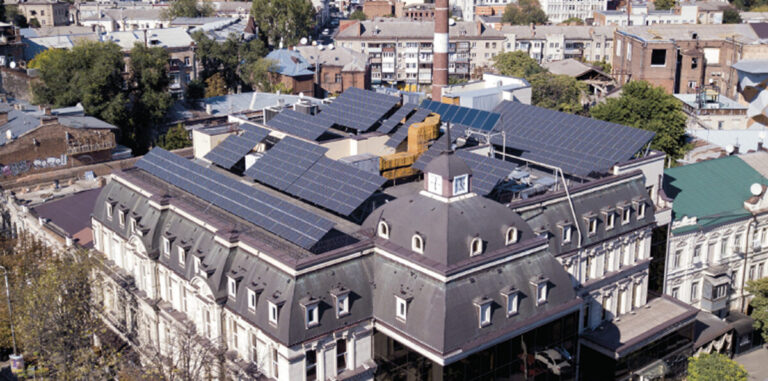An international research group has used a newly designed coalition game system to ensure economic justice among energy community members. The game system takes into account different types of prosumers who rely on standalone and combinations of solar energy and storage.
An international group of scientists led by China’s Sichuan Normal University has developed a novel coalition gaming system that maximizes the collective payoff of prosumers in a community-level peer-to-peer (P2P) energy trading market.
A coalition game is part of game theory, in which players form coalitions to achieve common goals and higher benefits.
“The methods presented in some literature are based on the premise that renewable energy and load can be accurately predicted, and this does not reflect the stochastic nature of real-world prosumer systems,” the researchers said. “There is a need and importance of developing new collational gaming systems and algorithms that can be applicable to the stochastic P2P energy trading environment with the participation of different types of prosumers.”
To solve this problem, the academics have introduced coalition rules into the game. It is ensured that prosumers have excess energy to sell, which means that their energy consumption should not exceed their production capacities. The second rule ensures that prosumers assume that their energy production is as good as possible, so that energy is not underused or limited. To enforce these rules, participating prosumers may be held liable for financial penalties and loss of collective compensation for losses.
The game system takes into account three types of prosumers: those who only have a renewable energy source, such as a PV system or a wind turbine; participants with battery energy storage systems (BESSs); and those that rely on both PV and batteries. The game also includes the system size and load of the prosumers.
“In the methodological part of the article, a rigorous theoretical analysis has been provided to prove the effectiveness of the proposed system in terms of: (1) ensuring economic justice among the coalition members; and (2) ensure that each member of the coalition can be more profitable in P2P energy trading compared to the situation where the member does not participate in the coalition,” the researchers said.
After setting up a series of equations to prove the above-mentioned theorems, the researchers proceeded to verify them. To do this, they performed numerical simulations on MATLAB. The solar radiation and power load data are taken from real data from Australia, and the P2P energy trading took place at an interval of 1 hour.
“The area of the solar panels at the prosumer locations is randomly determined between 10 and 20 m², and the energy conversion efficiency of the solar panels is randomly determined between 30% and 40%,” the researchers said. explained. “The energy capacities of the prosumer BESSs are randomly set between 4 kWh and 5 kWh and the initial state of charge levels of the BESSs are set between 30% and 50%.”
To evaluate the impact of uncertainty on the prosumer coalition, the research group created a simulation of 100 prosumers and compared their behavior in a system with and without the coalition rules designed to reduce risks. While in the rule case the coalition’s revenues increase as more members join, in the case of no rule they sometimes result in a decrease.
The group considered coalitions with 10 and 50 prosumers and the simulation proved that their collective payouts increased by 33.55% and 35.67% respectively, compared to a system without collaboration. The researchers then examined the impact of four parameters on the collective payout: the amount of energy stored in the BESSs, the power load of the prosumers, the size of solar panels and the relative error between the predicted and actual net power values.
“The figures clearly show that the collective payout values of the P2P energy trading system increase with the increase in the number of prosumers, the amount of energy stored in the BESSs and the size of the solar panels. The collective payout values decrease as the prosumers’ energy burden increases,” they pointed out.
“When the prosumer’s predicted net power is less than the actual power, reducing the ratio of energy stored to energy produced means that the prosumers sell a small amount of energy to consumers, reducing the prosumers’ payout. they added. “When the prosumer’s predicted net power is greater than the actual net power, increasing the ratio of energy stored to energy produced will lead to higher standard costs; As a result, prosumer payouts will decrease.”
The coalition game and its analysis were presented in “Uncertainty-aware prosumer coalition play for peer-to-peer energy trading in community microgrids”, published in the International Journal of Electrical Power and Energy Systems. Scientists from China’s Sichuan Normal University, Chongqing University, Zhejiang Institute of Industry and Information Technology and Australia’s University of Sydney conducted the research.
This content is copyrighted and may not be reused. If you would like to collaborate with us and reuse some of our content, please contact: editors@pv-magazine.com.


